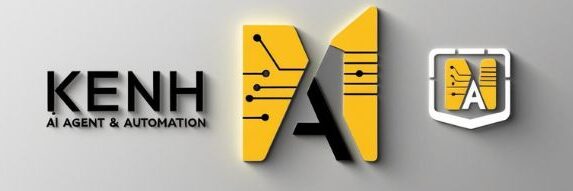The Future of Automation: AI Workflows in Business
Introduction
As we move deeper into the AI-driven decade, businesses of all sizes are witnessing a dramatic shift: automation is no longer static. It’s intelligent, adaptive, and increasingly driven by AI workflows. In 2025, these smart systems are transforming not just tasks, but entire business functions—from customer support to sales, HR, and marketing.
What is The Future of Automation: AI Workflows in Business?
AI workflows refer to automated, logic-driven sequences of tasks powered by artificial intelligence. Unlike traditional automation (which follows rigid rules), AI workflows:
Adapt to new inputs in real time
Make decisions based on data patterns
Trigger actions across multiple systems automatically
This evolution represents the fusion of workflow automation + AI decision-making, enabling businesses to scale operations while enhancing personalization and agility.
Key Components
🔹 1. Intelligent Agents
Agents such as AutoGPT, OpenAgents, and CrewAI act as autonomous task handlers across domains (e.g. scheduling, CRM updates, content creation).
🔹 2. Orchestration Platforms
Tools like LangChain, Zapier AI, Make.com, or Airflow with LLM plugins enable multi-step workflows across apps.
🔹 3. Natural Language Interfaces
Employees can launch workflows via Slack, ChatGPT, or voice—no coding required.
🔹 4. Memory and Context
With vector databases (e.g. Pinecone, Chroma), agents remember users, past actions, and preferences—enabling smarter decision paths.
Real-world Applications
✅ Enterprise Ops
AI agents handle purchase approvals, invoice classification, and HR ticket routing.
✅ Sales Enablement
Dynamic lead scoring, outreach automation, and real-time proposal generation.
✅ Marketing Automation
Blog generation, SEO audits, A/B ad testing—all executed via multi-step AI flows.
✅ Customer Support
AI agents triage support tickets, draft responses, escalate intelligently, and integrate with live agents.
Case Study: AI Agent for Customer Service
Company: Mid-size SaaS platform
Problem: Rising customer queries with a lean support team
Solution: Deployed an AI agent integrated with HelpScout + Notion knowledge base + Slack
Results:
70% of tier-1 queries auto-resolved
Response time cut by 85%
Saved 100+ hours/month in human labor
Feedback score improved by 22%
Bonus: The agent now also generates weekly customer insight summaries for product and marketing teams.
Challenges and Considerations
Overdependence: AI workflows must have human override for critical issues.
Integration complexity: Legacy systems may not be plug-and-play.
Data privacy: Compliance with GDPR, HIPAA, and other regulations is essential.
Prompt & Logic Maintenance: Workflow performance can degrade without prompt tuning or error correction.
Future Outlook
AI workflows will soon move beyond automating tasks to automating decisions. We predict:
Agents will coordinate with each other in real-time
Workflows will adapt based on company goals or KPIs
SMEs will access enterprise-grade automation via drag-and-drop AI platforms
AI-native orgs will replace traditional middle management with smart orchestration layers
By 2026, businesses not using AI workflows will fall behind in speed, efficiency, and personalization.
Conclusion
The future of business automation lies in modular, intelligent, and scalable AI workflows. Whether you’re a solopreneur or enterprise CIO, understanding and deploying these systems will define your competitive edge in the AI-first world.
🚀 Want to Master AI Tools?
Join our recommended AI Mastery Course and start building your AI agents and smart workflows today!
